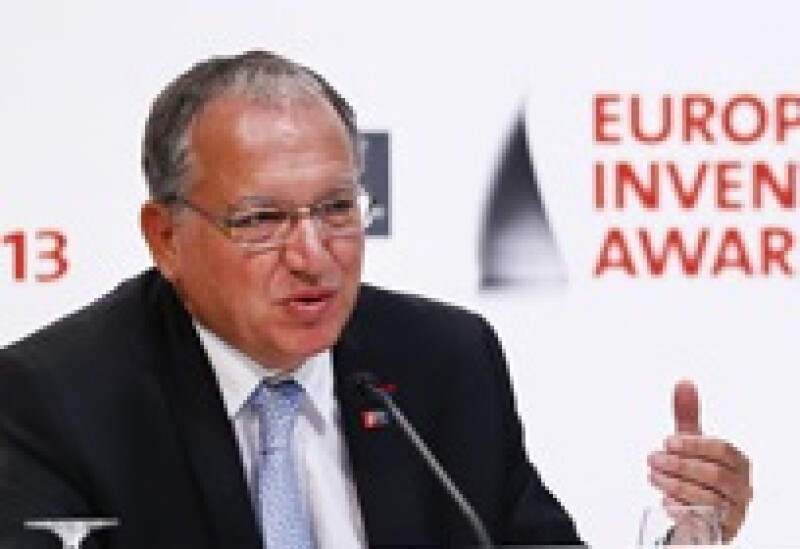This week, members of the Enlarged Board of Appeal have published a letter expressing concern about “a clear challenge to the judicial independence of the Boards of Appeal” and a leading German practitioner has written to a member of the Administrative Council voicing his concerns about judicial independence and “the EPO’s worldwide reputation”.

Meanwhile, strikes and demonstrations organised by the SUEPO union started on November 20 and are due to continue until December 19 (right). SUEPO claims the action, taking place in Munich and The Hague, is designed to protect the rule of law, freedom of association and honest negotiation of reforms. Additional demos have been organised in support of two colleagues facing disciplinary procedures.
But, speaking to Managing IP, EPO President Benoit Battistelli described the concerns as exaggerated and denied there is a crisis at the Office. He added that the Office’s productivity has improved since last year.
Judicial independence
Both of the letters released this week arise from an incident on December 3 where a member of the Boards of Appeal was escorted out of the Office by the investigation unit, which reports to Battistelli. A “house ban” was imposed on him and his computer was confiscated.
In a letter to the Administrative Council published on the IPKat blog, 35 members of the Enlarged Board of Appeal say that only the Council can decide to suspend an employee in these circumstances, and the president can merely propose such a disciplinary measure.
“This specific distribution of roles is part of the concept of separation of powers and the independence of the Board members as enshrined in Article 23 EPC."
“This specific distribution of roles is part of the concept of separation of powers and the independence of the Board members as enshrined in Article 23 EPC. However, in the present case, the President decided in lieu of the Administrative Council, for which no provision appears to exist,” they write.
They add that the confiscation of the computer could give the investigation unit access to confidential information regarding cases without “proper, legally sound guarantees”.
The signatories say they are “deeply concerned about this conduct” and that the actions “appear to be a clear challenge to the judicial independence of the Boards of Appeal”.
They urge the Administrative Council to ensure the independence of the Boards by placing “a clear limitation on the executive power”.
Deep concerns
In a separate email to Germany’s representative on the Administrative Council (Christoph Ernst), Tilman Müller-Stoy of Bardehle Pagenberg in Munich says he is “deeply concerned about the judicial independence at the EPO and about the EPO’s worldwide reputation”. The email is reproduced, in English, on the FOSS Patents blog.
“We have now reached a point where it is necessary for a public discussion to start”.
As well as addressing the situation of the Board member described above, Müller-Stoy also voices concern about the President “de facto” controlling reappointment of members of the Board. “The personal independence, the indispensable requirement of an also critical examination of administrative decisions, cannot be guaranteed under such conditions,” he writes.
Speaking to Managing IP, Müller-Stoy said he had decided to write the email because “we have now reached a point where it is necessary for a public discussion to start”. He has not yet received a reply.
“The initial and overriding point is that I’m really concerned about what’s happening at the EPO. All users of the system need a functioning EPO,” he said. “There is the question of the separation of powers. It is important that judges – though they are called members of the Boards of Appeal – must be not influenced by reasons other than the facts and legal status of the case in making their decisions.”
Battistelli responds

Speaking to Managing IP today, Battistelli (left) said the problems aired this week had been exaggerated: “There is no crisis at the EPO.”
He added: “What we have is we are about to implement important reforms and this creates some tensions … There is resistance to change, as has always been the case at the EPO. A minority of persons are afraid of change and express their dissatisfaction.”
Among the reforms proposed, and approved unanimously by the Administrative Council, is a move to pay based on performance rather than seniority. Battistelli said this was typical of the way salaries are calculated in many countries and institutions and was “appropriate for the 21st century”.
Battistelli said that the first strike in the current wave, on November 20, saw 36% of the Office’s staff walk out, but that yesterday only 5% of staff were on strike for either a half day or a full day.
Regarding the Board of Appeal member referred to in the letters, Battistelli said there was an “ongoing investigation” that he could not comment on. But he added that there had been a preliminary investigation regarding “serious misconduct” involving “disseminating defamatory and injurious documents”.
"My duty is to preserve the reputation of the EPO and its staff members."
This resulted in sufficient evidence to warrant the temporary removal of the Board member, pending a decision by the Council, he added. “My duty is to preserve the reputation of the EPO and its staff members … The person involved has the right to defend himself and we will see what the result will be.”
More generally, he said: “There are specific rules to preserve full independence of the Boards. These are to assure independence in specific cases, not to guarantee full immunity to each member.”
He also said he had no regrets about the reforms he has undertaken at the Office, and would not be changing tack: “Why should we change anything? The results are there and the policy is supported by the Council. Our continuing efficiency and quality policy is favourably received by the users.”
Managing IP also contacted Administrative Council Chair Jesper Kongstad and asked him to comment, but has not yet received a response. It is likely he is travelling to Munich today.
The Administrative Council includes representatives of all EPC member states, as well as the president, board of auditors, staff committee and observers. It is meeting on Wednesday and Thursday this week.










